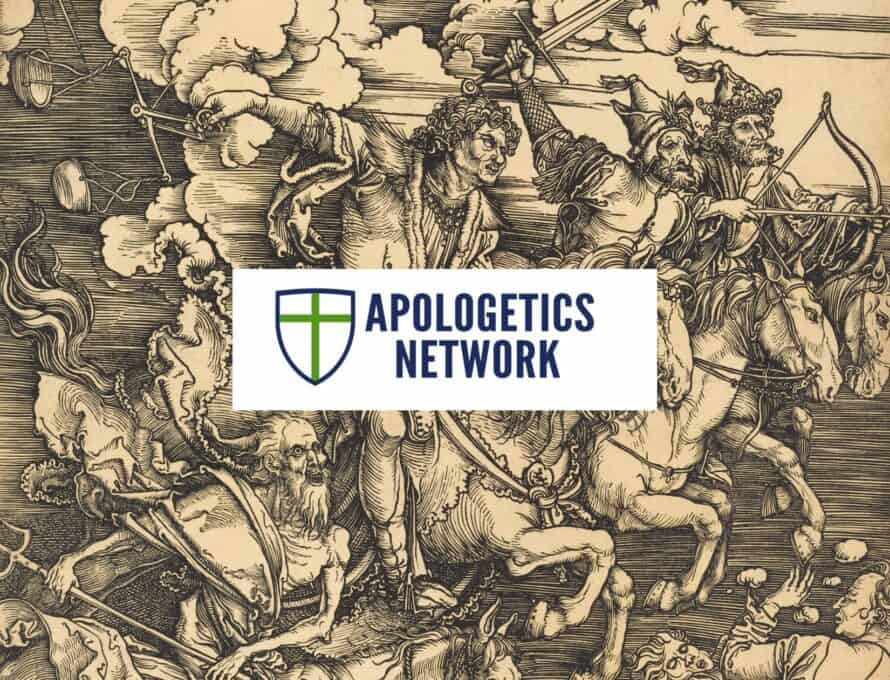ST. CHARLES – Few topics bring as much passion and differing positions as eschatology – the theological field that deals with the end times. Thus four of the most common views of the end times made a perfect topic for a pre-annual meeting debate hosted by the Missouri Baptist Apologetics Network, Oct. 23.
Moderated by David Van Bebber, pastor of Linn Valley Baptist Church in Linn Valley, Kan., four Missouri Baptist apologists took positions (that were not necessarily their own personal positions) and offered arguments, rebuttals and cross examinations before a crowd of about 50 at the convention center.
They were:
• Adam Cochrun, a member of Redeemer Church, Springfield, represented the post-millennial approach.
• Gabriel Zelaya, associate pastor of Pisgah Baptist Church, Excelsior Springs, represented the amillennial approach.
• Colten Wright, youth pastor of First Baptist, Linn Creek, represented the historic premillennial approach.
• Dennis Jackson, a member of Anchor Point Baptist Church, Independence, represented the dispensational premillennial approach.
Interpretations of the nature of the millennium referenced in Revelation 20 differ greatly among Southern Baptists, and that largely informs eschatological viewpoints. That passage describes a 1,000-year period (the millennium), during which Satan is bound. The disagreements occur regarding the timing of Christ’s return relative to this period and whether the number 1,000 is literal or symbolic. Premillennialists argue Christ will return prior to this millennium, while postmillennialists assert it will come before His return. Dispensational premillennialists argue Jesus will remove Christians from the earth prior to a tribulation preceding His return. Amillennialists believe the number 1,000 is figurative and that we are currently in the millennium and that Satan was bound by Christ through His finished work at the cross and has limited power until Christ returns.
Though no debater or position was declared the winner, Van Bebber said the evening was a profitable one.
“While we’re all brothers with a similar confession of faith, it’s incredibly important that we recognize the differences we have and work together, knowing Scripture is clear to know who God is,” he said.

